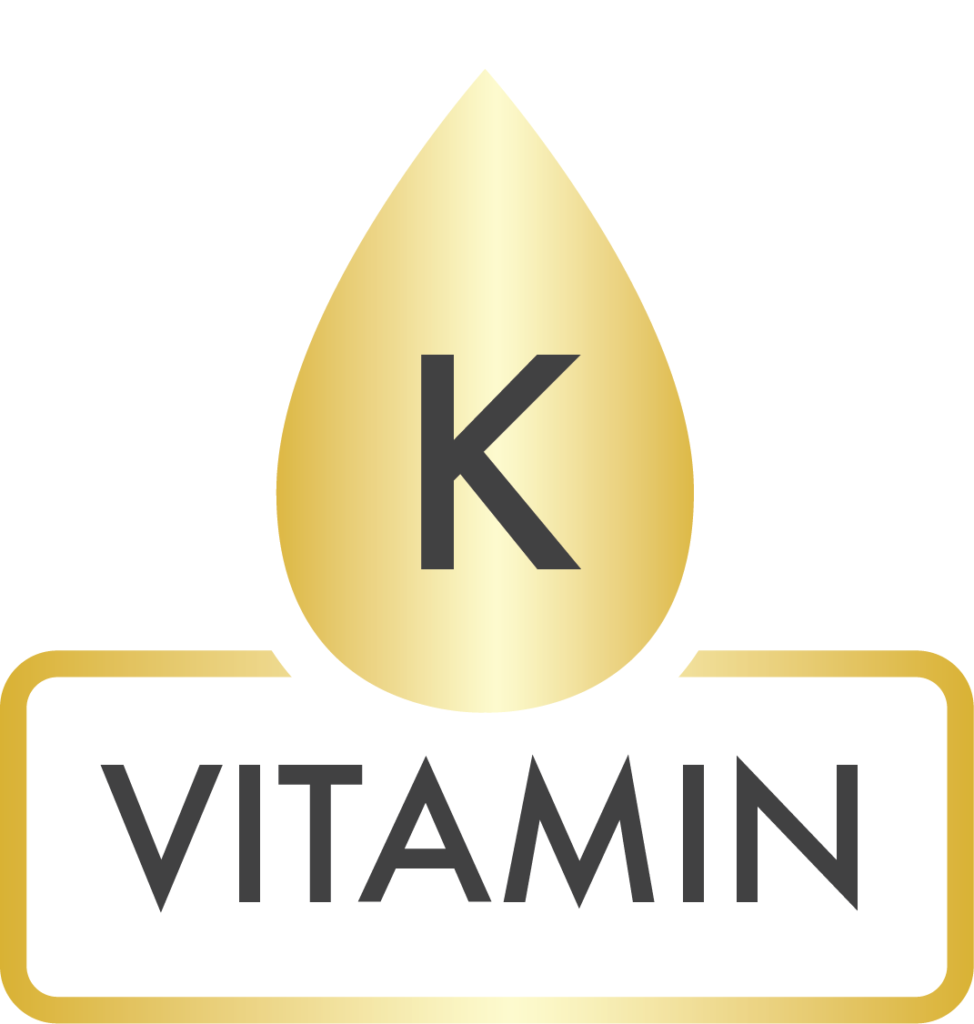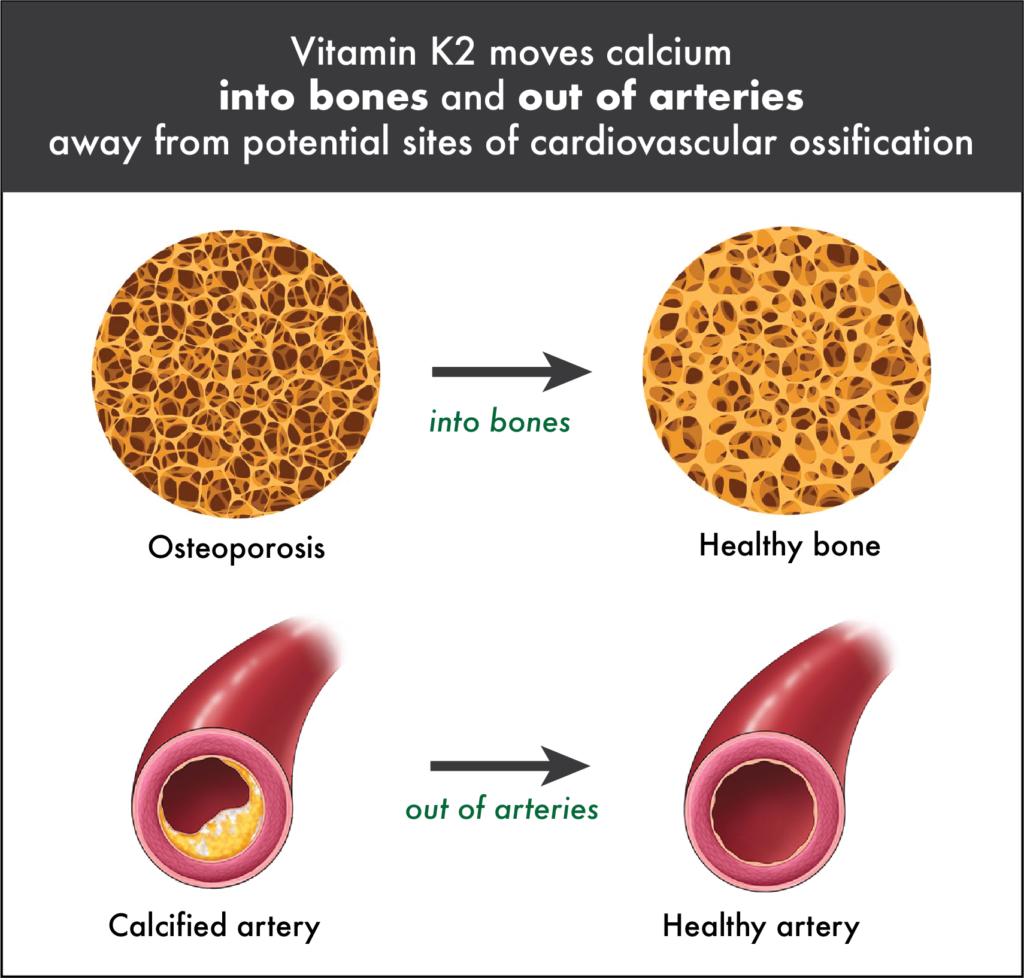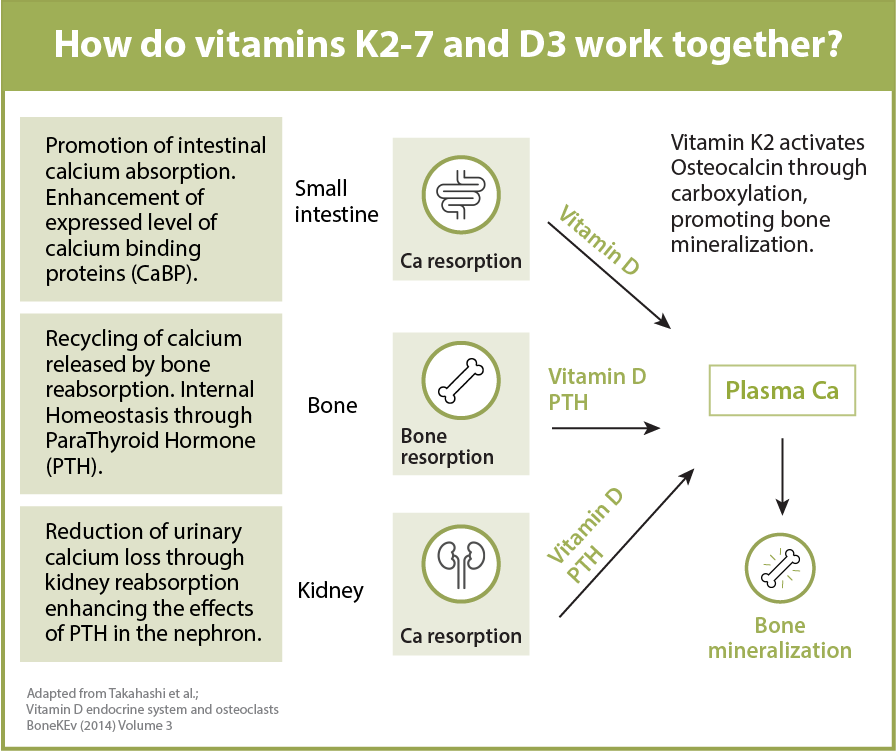Vitamins K2 and D3 are a dynamic duo, working together to play an important role optimizing calcium utilization, fortifying bones, and promoting cardiovascular health. While these vitamins are often discussed individually for their respective roles, it’s their combined efforts that create greater effects in the body.

Vitamin K is necessary for normal blood clotting and synthesis of proteins found in plasma, bone, and kidneys. Studies show that vitamin K2, specifically as menaquinone-7 (MK-7), is essential for the function of several calcium-binding proteins involved in the maintenance of the normal structure of osteoarticular system, teeth, arterial wall, and for the regulation of cell growth.
Vitamin K2 is an essential cofactor required to activate an important bone-building protein called osteocalcin. In the presence of Vitamin K2, the osteocalcin is modified (by carboxylation), allowing it to bind and recruit calcium to build new bone. By controlling these proteins in vascular tissue, vitamin K2 keeps calcium deposits out of the arteries and drives them to bones—i.e., moving calcium from where you don’t want it to the place where it belongs.

Numerous studies have emphasized the importance of maintaining adequate levels of K2 as MK-7 in supporting cardiovascular health and preventing the development of cardiovascular disease. By activating another calcium-binding protein, matrix GLA, Vitamin K2 prevents the formation of calcium deposits in the blood vessel walls. High levels of Vitamin K2 prevent the stiffening of blood vessels, reducing the risk of blood pressure disorders, thrombosis, heart attacks, and strokes.

Vitamin D3 plays a critical role in maintaining strong bones and promoting heart health as well. Vitamin D is most noted for optimizing calcium bioavailability, thereby promoting peak bone mass and bone strength. By facilitating calcium and phosphorus uptake, vitamin D helps fortify bone density, reducing the risk of fractures and osteoporosis, especially in older adults.
Sufficient vitamin D levels have also been associated with a reduced risk of heart disease, hypertension, and stroke, highlighting its importance for cardiovascular health. This fat-soluble vitamin helps regulate blood pressure and supports healthy blood vessel function.
Power Pair
Recent studies have demonstrated that the combination of vitamin K2 as MK-7 and vitamin D3 is more effective in preventing bone loss than either nutrient alone. These two vitamins work together to promote the absorption of intestinal calcium, recycle the calcium released by bone reabsorption and reduce the amount of urinary calcium loss through kidney reabsorption.

The partnership between vitamins D and K2 highlights their complementary roles in optimizing calcium utilization and distribution throughout the body, ultimately promoting both skeletal strength and cardiovascular health. This collaboration is a remarkable example of nutritional synergy.

